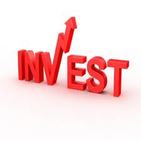
A. There are thousands of index funds and ETFs, you can put them into five different categories and then choose the best index funds and ETFs from each category.
1. Traditional Index Funds
These are super low expense index funds that track the performances of the well known indexes, such as S&P 500, the Dow industrials, the MSCI EAFE index (stocks in developed foreign markets), the Russell 2000 index (small company stocks), etc.
The best ones are Vanguard Index 500 (VFINX), Vanguard Total Stock Market Index (VTSMX), PowerShares QQQ (QQQ).
2. Segment Based Index Funds
These index funds focus on anyway you can slice and dice the broader markets. For example, Biotechnology sector funds, Dividend funds, (SDY), etc.
3. Non-traditional Index Funds
Unlike traditional index funds that use market caps as the weights, these non-traditional index funds use other measures, such as a company's dividend payments, cash flows, sales, etc. For example, PowerShares FTSE RAFI US 1000 (PRF), WisdomTree Large Cap Dividend (DLN).
4. Commodity Focused Index Funds
These funds track the price of a particular commodity instead of an index. For example, iShares Gold Trust (IAU), United States Oil Fund (USO), etc.
5. Leveraged Index Funds
These speculative index funds or ETFs enable you to bet 2 times or even more the underlying index's performances, such as India Bull 3X Shares (INDL), but be careful, they are really bad long term holdings. For example, in 2012, the MSCI India Index rose 18.4%, but INDL sank 13.0%!

 RSS Feed
RSS Feed
